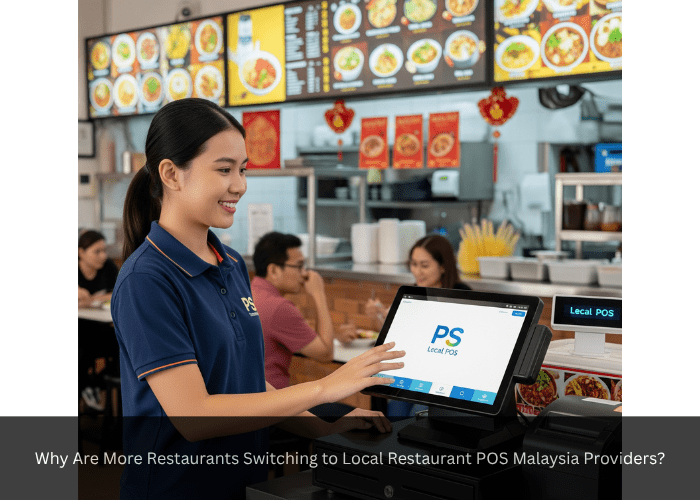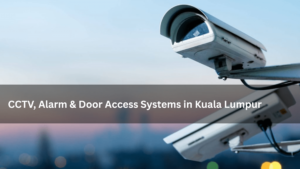As the Malaysian F&B industry becomes increasingly digital, restaurants are realizing that having the right POS system is not just a convenience—it’s a necessity. More than ever before, restaurants are choosing local Restaurant POS Malaysia providers instead of international software. Why? Because local solutions are built to meet the real, daily operational needs of Malaysian food businesses—whether it’s syncing with local payment apps, printing receipts in dual languages, or complying with local SST tax policies.
In this detailed 3,000+ word article, we explore the top reasons why Restaurant POS Malaysia providers are rapidly becoming the go-to choice for food and beverage operators across the country.
Restaurant POS Malaysia – Superior Integration with Local Payments & Delivery Apps
One of the primary advantages of local Restaurant POS Malaysia systems is their tight integration with Malaysia’s most popular digital payment platforms and food delivery services. These include:
-
GrabPay
-
Touch ‘n Go eWallet
-
DuitNow QR
-
Boost
-
ShopeePay
-
Foodpanda
-
GrabFood
While many foreign systems require third-party plugins or manual workarounds, Malaysian providers like StoreHub, Eats365, and SmartQ offer built-in compatibility. This means fewer bugs, faster order syncing, and smoother transactions.
For example, StoreHub’s “Beep” delivery platform connects directly to their POS system, letting restaurants manage in-house, takeaway, and delivery orders from a single terminal. Local vendors also provide real-time syncing, helping restaurants prevent order mismatches and delays—especially during peak hours.
Restaurant POS Malaysia – Bilingual Support and Local Language Interfaces
In Malaysia, the ability to toggle between English, Malay, and Chinese is more than a nice-to-have—it’s critical. Many restaurant teams are multi-ethnic and multilingual, and training new staff in unfamiliar software can lead to costly mistakes.
Local Restaurant POS Malaysia vendors understand this and provide:
-
Dual-language printed receipts
-
Staff training materials in Bahasa Malaysia and Mandarin
-
Interfaces that switch languages based on user preference
-
Bilingual customer service via chat, email, and WhatsApp
Vendors like Qashier and Xilnex lead in this area, offering real-time training assistance in multiple languages. This is one reason why local systems see lower onboarding failure rates compared to foreign alternatives.
In contrast, many overseas POS systems—especially US-based platforms—offer only English or Spanish, leaving Malaysian F&B teams struggling with translations and contextual misunderstandings.
Restaurant POS Malaysia – Compliance with SST, E-Invoicing, and Local Regulations
Local tax compliance is another area where Restaurant POS Malaysia systems excel. International POS software often requires customizations to support Malaysian SST (Sales and Services Tax), which can lead to errors or penalties during audits.
By contrast, Malaysian systems are already configured to:
-
Apply SST to applicable menu items
-
Generate compliant tax invoices
-
Export formatted reports for LHDN submissions
-
Prepare for e-invoicing mandates
-
Maintain audit trails as per government standards
As e-invoicing becomes mandatory in 2025 for certain business sizes, local vendors are rolling out updates to automate compliance. HashMicro, for example, has partnered with Malaysian tax consultants to pre-load SST rates and compliant invoice templates.
Using a Restaurant POS Malaysia solution that’s already aligned with domestic rules not only saves time and money—it also offers peace of mind.
Restaurant POS Malaysia – Faster Support and On-Site Servicing
Support responsiveness is one of the biggest motivators for switching to a local POS provider. If your system crashes at 7 PM on a Saturday night, an overseas helpdesk operating on US time zones won’t respond until it’s too late.
Local Restaurant POS Malaysia vendors typically offer:
-
Local customer support teams based in KL, Penang, and JB
-
WhatsApp support with response in under 15 minutes
-
On-site troubleshooting and technician visits within 24 hours
-
Spare terminal deployment within 2–3 hours (for premium plans)
-
Support SLAs with guaranteed resolution windows
For instance, Qashier has dedicated support centers across Klang Valley and provides same-day hardware swaps for critical clients. Eats365 partners with local hardware vendors to offer on-demand replacement for printers and terminals.
With support services that understand Malaysian business hours, holidays, and expectations, restaurants can recover faster and minimize losses.
Restaurant POS Malaysia – Cost-Effective Pricing Models for Local Budgets
International POS systems often bill in USD and include features that aren’t relevant for Malaysian businesses, making them unnecessarily expensive. Local Restaurant POS Malaysia providers offer modular plans that scale with your business.
Here’s how they typically save you money:
-
Ringgit-denominated pricing
-
Tiered plans for food stalls, cafes, and full-service restaurants
-
Optional modules (e.g. KDS, CRM, Inventory)
-
Flat-rate subscriptions with local taxes included
-
No need for currency conversion or foreign transaction fees
For example, SmartQ starts at RM99/month for basic QR POS, while StoreHub offers full-featured plans under RM300/month for small cafés. Compare that to international platforms charging USD80–100/month—before even adding hardware.
This pricing flexibility lets Malaysian restaurateurs invest in only what they need—while avoiding currency risk and bloated packages.
Restaurant POS Malaysia – Customization for Local Workflows
The foodservice industry in Malaysia includes an eclectic mix: mamak stalls, kopitiams, high-end restaurants, food trucks, and café franchises. Each has unique workflows—and many overseas POS systems are built for Western-style restaurants, not nasi lemak vendors or roti canai shops.
Local vendors offer customizations such as:
-
Split-payment via multiple e-wallets
-
Combo menu logic for hawker centers
-
QR code ordering with table mapping
-
Integration with local printers and cash drawers
-
Custom receipt layouts with Malay or Chinese names
Xilnex, for example, is widely adopted among local chains because it allows intricate pricing controls, automatic GST/SST tagging, and even supports variable serving sizes in grams—great for seafood or steamboat outlets.
The flexibility to reflect local dining patterns is a key reason why restaurant operators feel more comfortable choosing a Restaurant POS Malaysia solution.
Restaurant POS Malaysia – Stronger Data Security and Data Residency
Data residency is an emerging concern. With growing fears about where business data is stored—especially financial and customer information—many Malaysian operators prefer systems that store their data locally or in regional cloud servers (e.g. Singapore).
Most local Restaurant POS Malaysia vendors comply with:
-
PDPA (Personal Data Protection Act)
-
Localized hosting agreements
-
Transparent backup policies
-
Secure access controls and audit logs
Meanwhile, many foreign providers store everything in North America or Europe—often outside Malaysia’s jurisdiction. In the event of a data breach, recovery times may be longer and less transparent.
With local providers, business owners know who’s managing their data—and can enforce stricter privacy measures if needed.








